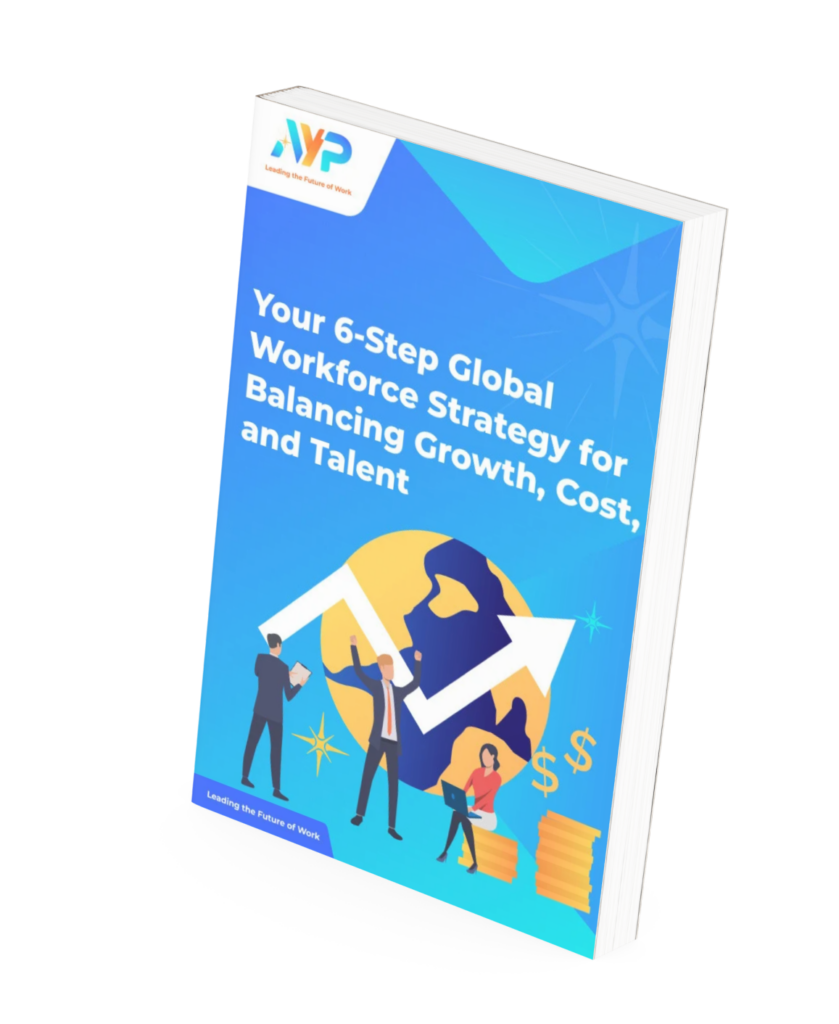Planning to expand your business to Vietnam? Start here.
Business expansion is necessary, especially since the future of work is global. But it can be a messy and complex process. There are many local laws and regulations that you have to take note of, or you may end up getting into legal trouble.
To best expand your business overseas legally and without fuss, you can leverage AYP PEO and EOR solutions. We can help you hire overseas, onboard remotely, and manage your tax responsibilities and compliance across countries with the use of a single platform. Here are 5 quick tips on how to build a team in Vietnam:
Vietnam ranks 65th in the global index of English-speaking countries
Vietnamese is Vietnam’s official language, but you may encounter other languages being used in formal documents as well. The other languages may include French, Mandarin, and Khmer, but English is seldom used by locals.
If you’re unfamiliar with the above languages, you may want to consider hiring a professional Vietnamese translator and interpreter. It is also good business practice to offer official documents in at least another language aside from English to avoid any future misunderstandings.
Written contracts are necessary in Vietnam
When hiring a Vietnamese employee, you have a legal responsibility to have a written employment contract in Vietnamese and the employee’s native language. The contract can be made for fixed-term or regular employment, specifying position, job scope, compensation, employment benefits, termination requirements, and other guidelines regarding employee and employer rights.
Without a written contract, you can be penalised with a fine for each hired Vietnamese employee.
Note that the standard workweek is 40 hours long
Most employees work 40 hours a week, and most work shifts seldom go beyond eight hours per day. Each week, employees are also legally entitled to at least one entire day off. In terms of paid annual leave, companies have to offer at least 12 days, and unpaid leave is subject to approval.
Employees are also entitled to maternity and paternity leave, with sick or hospitalisation leave being supported by Vietnam’s social insurance programme. On top of their annual leave, they also don’t expect to work on Vietnam’s 11 public holidays. This includes the nationwide week-long Tet Lunar New Year celebration.
Keep in mind the two types of minimum wage
The first type of minimum wage applies to employees in state-owned organisations, while the second applies to all non-state organisations and jobs. Varying across regions, the minimum wage rates range from 3,070,000 to 4,420,000 Vietnamese dong.
Aside from monetary compensation, employers must provide their employees with health insurance, social and unemployment insurance. There are also additional taxable options for employers to take better care of their employees, such as housing assistance, transportation allowance, and other employment benefits.
Learn about Vietnam’s mandatory taxes
Employers have to pay a 20% rate for Corporate Income Tax (CIT), a portion of employee social security costs, and Value Added Tax (VAT) on purchases. You are also responsible for covering 3% of current health insurance and 1% of unemployment insurance for your employees.
According to the law, employers also have to withhold all mandatory employee and federal taxes. The taxes would then be reported to the Vietnamese tax authority quarterly on the 30th day of the following month or monthly on the 20th day of the following month.
As for employees, they are required to pay an individual income tax (IIT), and their salaries and bonuses are subject to personal income tax (PIT).
These five tips offer a broad understanding of what your business should take note of when expanding to Vietnam. But of course, you should still do more research, since these rules and regulations may also change over the years.
With AYP PEO and EOR solutions, however, you can quickly build a team in Vietnam without keeping up with these regulations. You can even do so without a legal entity.
This is because you can outsource all of your HR tasks to us, and we will take care of all necessary tasks to expand your business successfully.
Featured Content
1. How HR Analytics Help With Talent Performance



